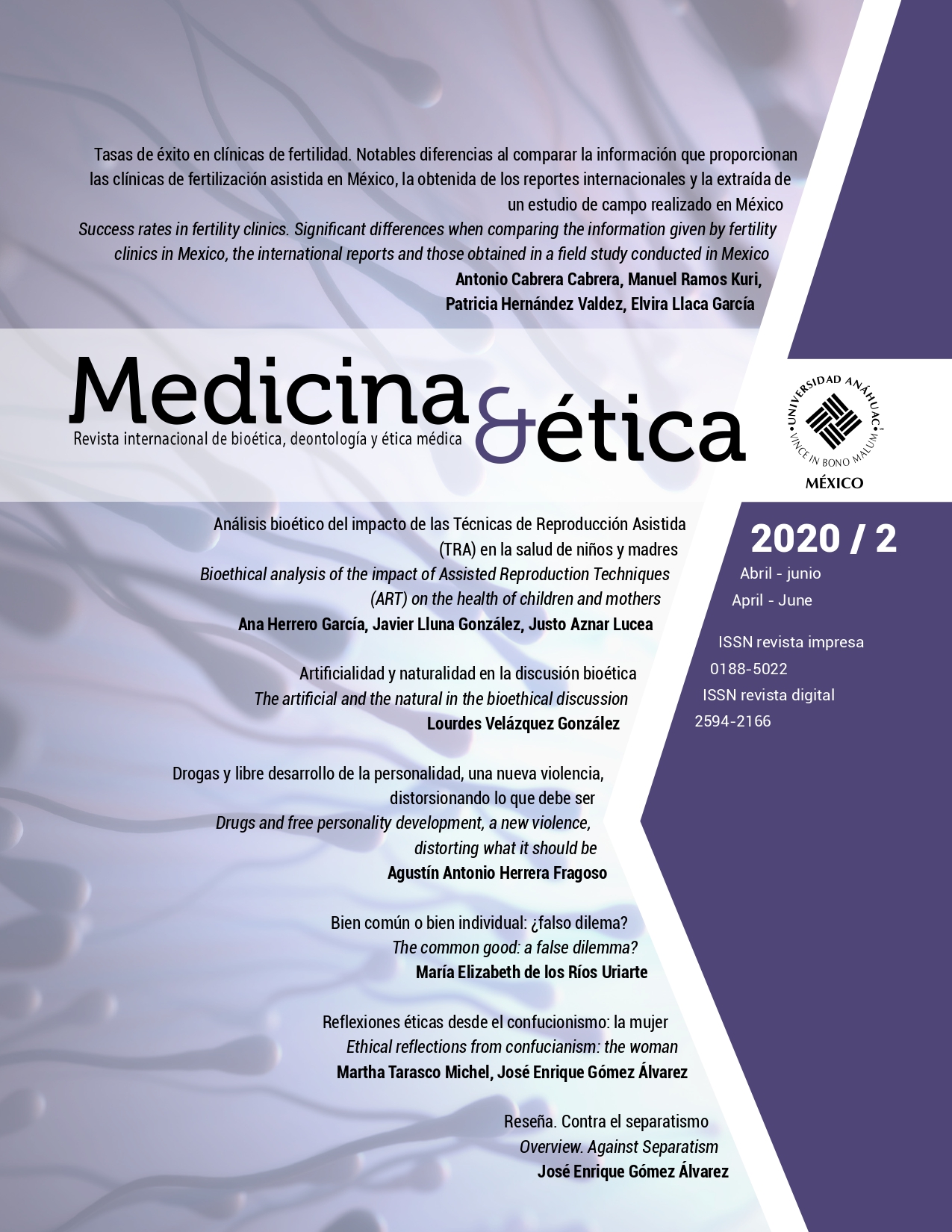Bioethical analysis of the impact of Assisted Reproduction Techniques (ART) on the health of children and mothers
Main Article Content
Abstract
Assisted reproductive technology (ART ) can be connected to obstetric and perinatal complications, including a higher risk of congenital malformations and acquired diseases. It is an important duty of healthcare professionals, to inform those who wish to avail themselves of these techniques, about both the health risks for mother and newborn. Apart from the biological risks, ART also raise bioethical problems that must be addressed through the central value of the human life.
The main aim of this retrospective study is the bioethical and biomedical analysis of the impact of ART on children and mothers’ health, comparing the risk of pathology in natural conceived babies, and those who are ART infants.
Downloads
PLUMX Metrics
Article Details

This work is licensed under a Creative Commons Attribution-NonCommercial-ShareAlike 4.0 International License.
Medicina y Ética is distributed under a Creative Commons License Atribución-NoComercial-CompartirIgual 4.0 Internacional.
The author keeps the property rights with no restriction whatsoever and guarantees the magazine the right to be the first publication of the work. The author is free to deposit the published version in any other medium, such as an institutional archive or on his own website.

